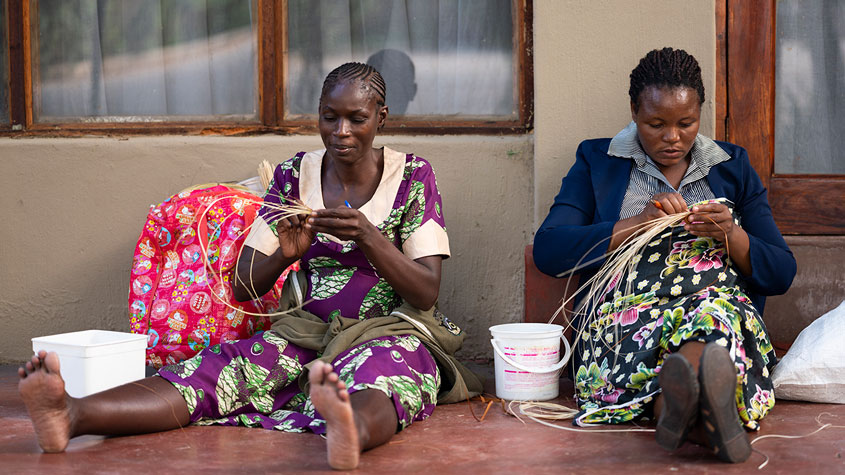Basket Branding in Botswana Moves Forward
March 6, 2020
An evolving branding project on traditional baskets reached its second milestone during a training workshop on February 25 and 26, 2020, in Kasane (Botswana). Bringing together 30 basket weavers from villages in Chobe District, the basket weavers successfully came to a consensus on their new cooperative and collective mark for their own regional brand.
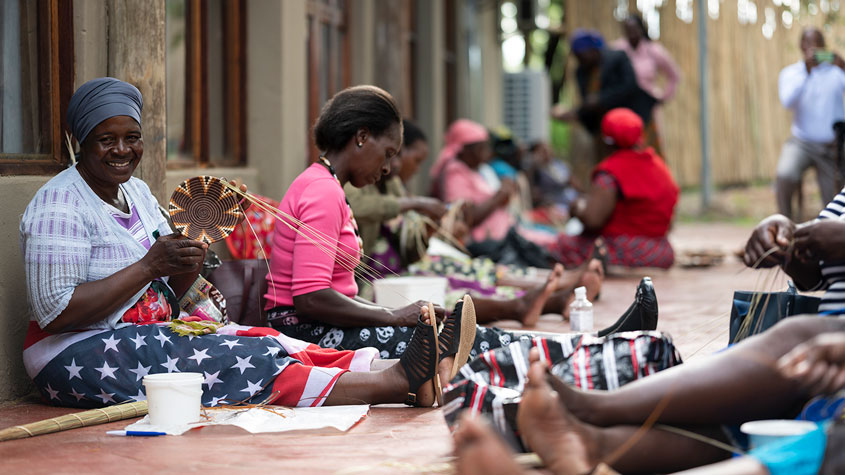
The project, initiated by WIPO, in cooperation with the Japan Patent Office (JPO), the Companies and Intellectual Property Authority (CIPA) and the Department for Cooperative Development, Ministry of Investment, Trade and Industry (MITI), has gained momentum since its kick-off event last year.
30 basket weavers from three existing cooperatives gathered to discuss:
- the organization of their new umbrella cooperative;
- the logo design for their proposed collective mark;
- regulations on the use of the mark; and
- quality standards and grading system to be adopted.
With one exception, all participants were women. As a point of reference, the basket weavers were introduced to the successful branding story of Imabari towel, a regional product of Imabari (Japan) known for its high-quality towel production.
United as one
Three small basket weaving cooperatives decided to work together by uniting themselves under an umbrella cooperative. The formation of a united cooperative is the first step towards the development of the regional “Chobe Basket” brand.
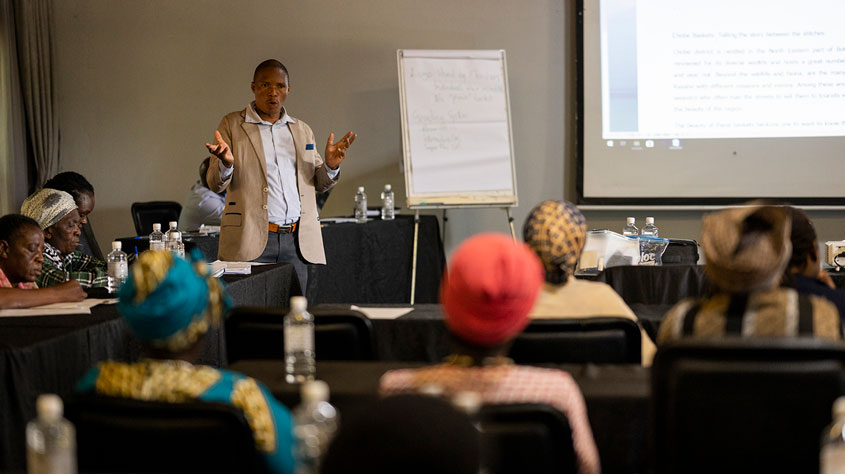
If you work together, you can have a powerful brand. If you work alone, you cannot meet the demand. Together, you can achieve. You will see. Cooperatives work.
Mr. Goloswang Ramogala, Ministry of Investment, Trade and Industry, Botswana.
To establish the identity of their brand, the participants had extensive discussions on design of their logo ultimately agreeing on the adoption of one design. They also clarified the desired quality standards and a grading system that while having existed for some time as shared knowledge, had never been written down.
A trademark is a useful tool for promoting your brand. Customers buy your baskets and introduce your mark to other people. We would like hear more people talking about the creativity of your baskets.
Mr. Timothy Moalusi, Registrar Industrial Property, Companies and Intellectual Property Authority, Botswana.
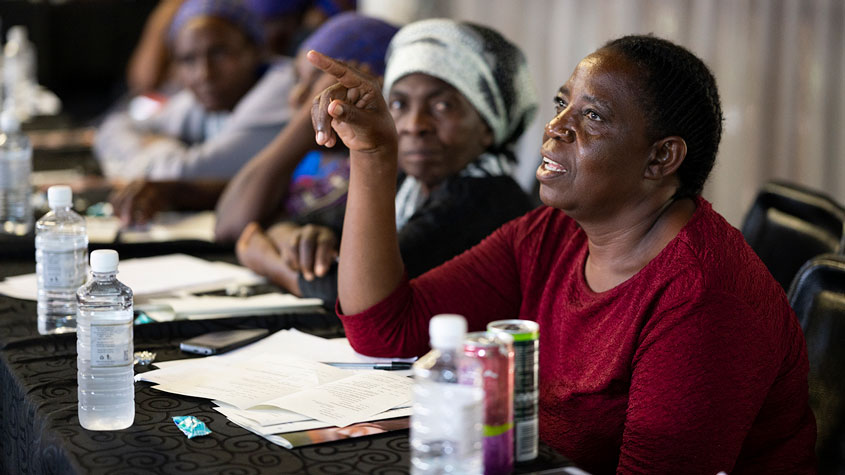
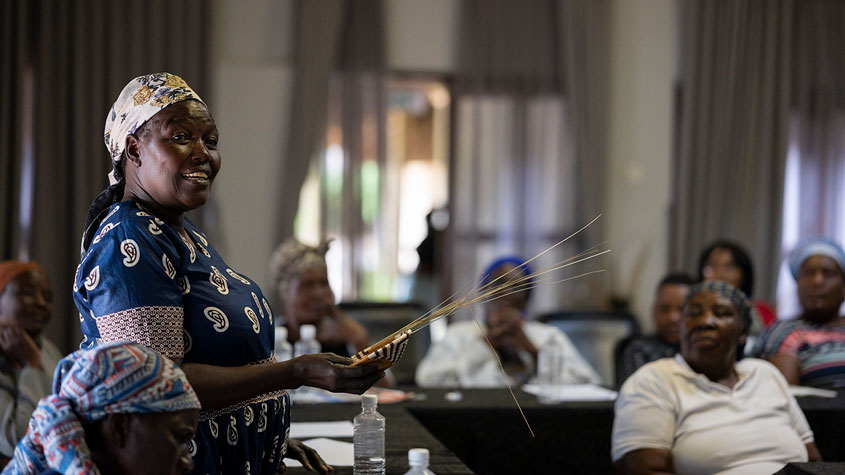
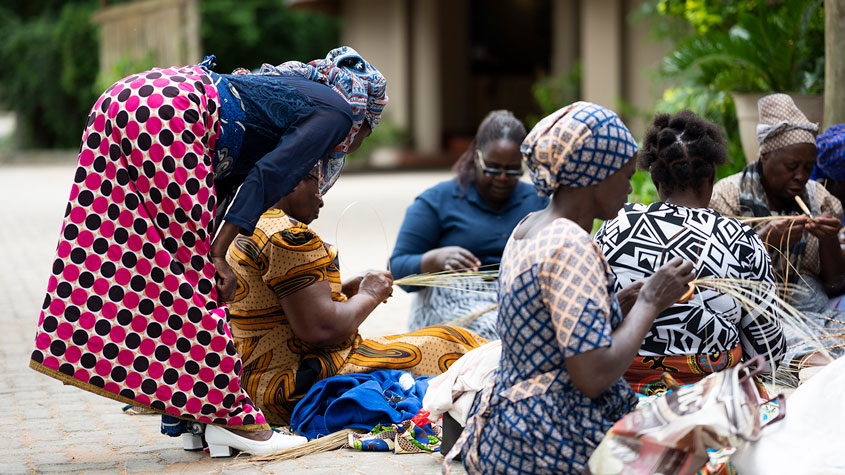
Background
In Chobe, baskets have traditionally been made by women. Basket weaving is a livelihood strategy to obtain an income that contributes towards the basic needs of households. The knowledge of basket weaving has been passed down from mothers to daughters from generation to generation.
The baskets are made from leaves of mokola palm trees which are native to the region. They are adorned with various patterns created by interweaving leaves colored with natural dye from indigenous plants.
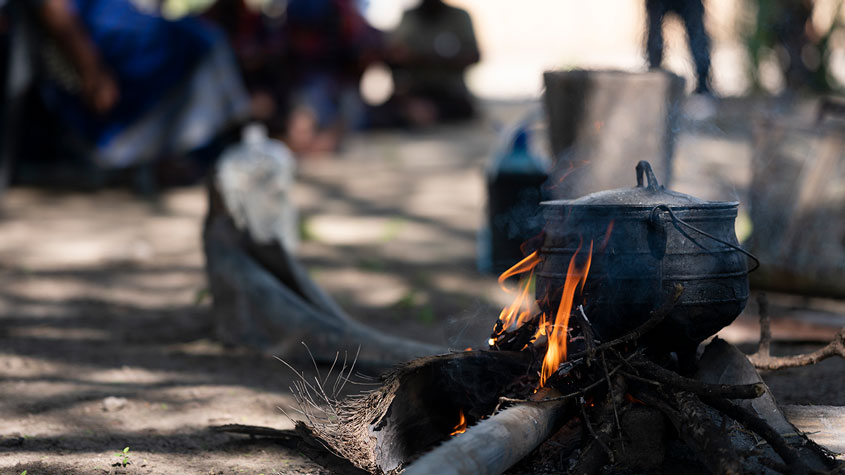
They used to make baskets for home use, but nowadays, the baskets are marketed to tourists from around the world, who are attracted by the rich wildlife of this region.
However, up until now, production has been fragmented, with small basket weaving cooperatives operating independently in their respective villages. They are now learning how they can come together and leverage the intellectual property (IP) system to protect and promote their products to a larger audience.
